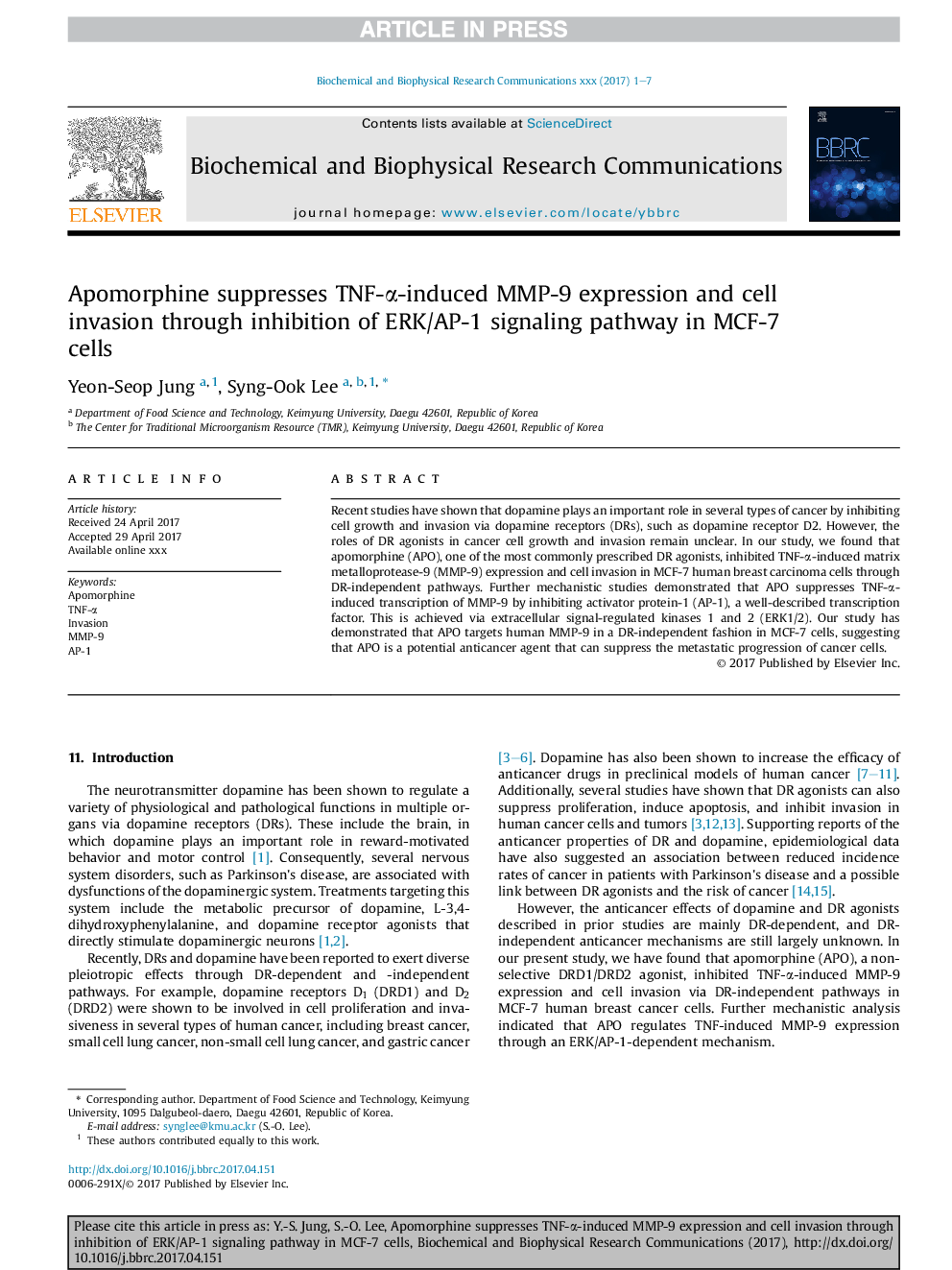| Article ID | Journal | Published Year | Pages | File Type |
|---|---|---|---|---|
| 5505692 | Biochemical and Biophysical Research Communications | 2017 | 7 Pages |
Abstract
Recent studies have shown that dopamine plays an important role in several types of cancer by inhibiting cell growth and invasion via dopamine receptors (DRs), such as dopamine receptor D2. However, the roles of DR agonists in cancer cell growth and invasion remain unclear. In our study, we found that apomorphine (APO), one of the most commonly prescribed DR agonists, inhibited TNF-α-induced matrix metalloprotease-9 (MMP-9) expression and cell invasion in MCF-7 human breast carcinoma cells through DR-independent pathways. Further mechanistic studies demonstrated that APO suppresses TNF-α-induced transcription of MMP-9 by inhibiting activator protein-1 (AP-1), a well-described transcription factor. This is achieved via extracellular signal-regulated kinases 1 and 2 (ERK1/2). Our study has demonstrated that APO targets human MMP-9 in a DR-independent fashion in MCF-7 cells, suggesting that APO is a potential anticancer agent that can suppress the metastatic progression of cancer cells.
Keywords
Related Topics
Life Sciences
Biochemistry, Genetics and Molecular Biology
Biochemistry
Authors
Yeon-Seop Jung, Syng-Ook Lee,
